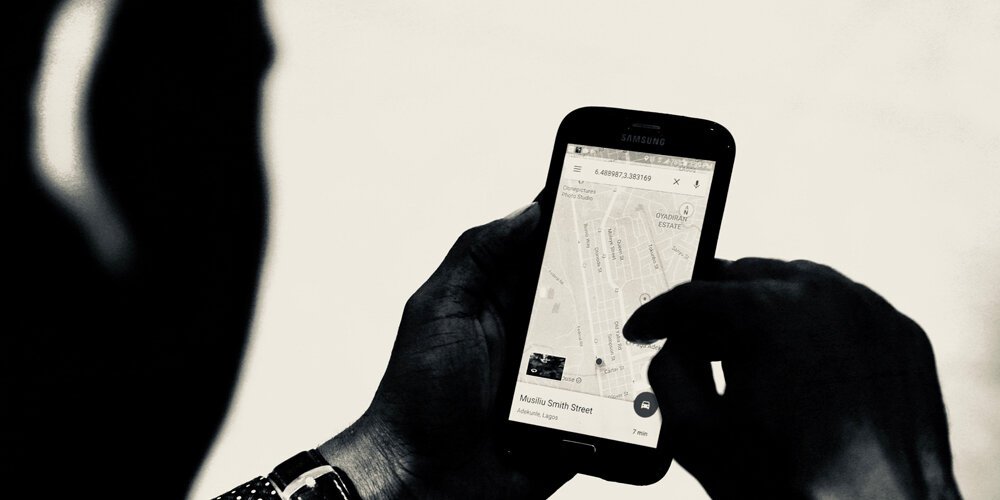Surveillance Tech 101
Photo by Pawel Czerwinski on Unsplash
– Guest article by Meghan Wenzel
Why we should care about protecting our privacy… before it’s too late
When technology, data, and privacy have come up in conversation with friends and family, I’m often surprised by how little people know and care about them. During a stint in the adtech world, I was horrified to discover the true extent of how much time, money, and effort organizations spend to collect and sell personal data. While privacy is becoming a more prominent topic, I’m still generally met with some version of “Well I’m not doing anything wrong, so I don’t need to worry about it”.
I’ve realized this is a very short-sighted perspective. After witnessing how much personal data companies are collecting every instant of every day (from location data to purchase data to browsing data), I’ve realized how important it is for us to have more control and say over how our data is bought, sold, and used. Controlling our data is about more than privacy – it’s about power, control, equality, freedom, and freewill.
When organizations collect information and data about our appearance, behaviors, and whereabouts, they can use that information in a variety of ways. If this information falls into the wrong hands, things can turn scary very quickly, from discrimination to manipulation to imprisonment. We should all care about privacy – especially before it’s too late.
What is Surveillance Technology?
Rapid technological advancement has brought about many improvements to daily life, however it has also enabled an entire ecosystem of data collection and surveillance technology, from imaging devices to location tracking technology to communications eavesdropping systems. These technologies allow organizations, corporations, and governments to monitor behavior, activities, or information and collect incredibly granular data about individuals.
The deployment of these technologies so far has greatly exceeded our knowledge, willingness, and ability to react and regulate them. We need to educate ourselves on the ramifications of these technologies and act swiftly to develop basic privacy principles and general regulations to protect our rights.
Facial recognition and location tracking are two main types of surveillance that we’ll address here; leaving social media for another time.
Swiss European surveillance: facial recognition and vehicle make, model, color and license plate reader. Used in Germany and Switzerland for tracking you and logging your movement for future reference. –Maraparacc at English Wikipedia
Facial recognition
Facial recognition technologies are computer programs that analyze and identify human faces. They can be combined with public cameras and used passively to monitor and track people without their knowledge or consent. Facial recognition and video surveillance can be used for general surveillance, with authorities installing massive camera networks and using facial recognition to create a “comprehensive system of identification and tracking”.
Police departments have quickly and quietly embraced facial recognition technology despite research finding it seriously flawed. In 2019, the National Institute of Standards and Technology found that certain algorithms were biased, misidentifying African American or Asian individuals 10-100x more often than White males. With these documented error rates, it seems reckless to use them to arrest, charge, detain, and convict people.
Additionally, due to our decentralized model of policing, many local jurisdictions are driving the adoption and deployment of advanced surveillance technologies, often without much oversight or wider consideration. Advocates argue that video surveillance both deters and helps solve crime, yet camera systems are often implemented without research into the actual effectiveness or appropriateness of the technology.
Last year, some LAPD officers used Clearview AI, a controversial software that scrapes images from social media and other websites to build a database of billions of photos. This year, the LA Police Commission responded to public outcries and restricted officers from using third-party search platforms, however they are still able to use an internal platform with mugshots. The Commission argues this strikes the right balance between protecting civil liberties while still giving cops the tools they need to solve crimes.
Additionally, law enforcement used extensive aerial surveillance during BLM protests last year. There’s something very chilling about law enforcement monitoring and collecting identifying information on people exercising their right to freedom of expression to call for social justice.
Technologist Roger McNamee explains the problem:
“The flaws of new products like facial recognition and AI are not inevitable; they result from a culture that ships products at the earliest possible moment, without consideration for the impact on the people who use or are affected by them.”
Companies develop and sell products without carefully considering peoples’ due process rights since the market doesn’t incentivize nor prioritize these concerns.
Photo by Lagos Techie on Unsplash
Smartphones and location tracking
While many of us are attached and even dependent on our smartphones, they have a more sinister side to them. “Every minute of every day, everywhere on the planet, dozens of companies — largely unregulated, little scrutinized — are logging the movements of tens of millions of people with mobile phones and storing the information in gigantic data files”.
This data includes sensitive information such as residence, habits, interests, demographics, and behaviors, and the average person is fairly unaware of the true extent of this data collection. Applications and companies purposely try to hide the extent of their data collection.
“The design logic of information and communications technology, from smart phones to digital platforms, is oriented towards maximizing the collection of user data with little oversight or transparency. While authoritarian and democratic states employ varying surveillance approaches, the end result facilitates commercial and government exploitation.”
In 2018, a service called Securus allegedly allowed a former sheriff to track people’s real-time location without a court order. And reports show that all major US cell carriers sell real-time phone location data to the highest bidder without your explicit permission.
"We don’t really have federal laws that are focused on that backend sale of personal data. A lot this is just the Wild, Wild West, honestly. That’s why the companies do whatever they want." –Alan Butler, senior counsel at the Electronic Privacy Information Center.
This information is vulnerable to hacking, not just selling. Hackers breached Securus, accessing and sharing usernames, email addresses, and hashed passwords.
Apple’s latest iOS update is a step in the right direction, prompting users to explicitly grant apps permission to track their behavior and sell their personal data. However we need to continue to expand upon this movement for greater data control and privacy.
In addition to widespread data collection and sale, we’re seeing worrying combinations of social networks and location tracking. Citizen, a “personal safety network”, is an app you can download on your phone. It advocates for transparency and empowerment, urging people to share and act on real time safety alerts.
However, their platform is rife for error and abuse. When a brush fire broke out in Los Angeles, a Citizen post shared an image of a young man, labeled him the suspect, and offered a $30,000 reward. The post was circulated widely, however when LA County sheriff’s deputies found him, they quickly eliminated him as a suspect.
Citizen has been accused of sparking vigilantism by encouraging people to collect videos and pictures of crimes as they unfold. Additionally it is quietly testing a new tool that makes scanner-listening software available to regular users. Encouraging people to monitor and record each other can lead to invasive surveillance, racial profiling, and general panic.
Crime-tracking apps like Citizen can legitimize racist perceptions, as people are left to their own judgments on what is suspicious and who does and does not belong. While it aims to “empower” and “connect communities”, they may be doing the exact opposite, creating a tense, distrustful, and paranoid atmosphere.
What are the implications of these technologies?
📡 Surveillance can fuel mistrust
Research has found that even the possibility of being watched or monitored can change the way people think and behave, leading to “self-censorship”. It can deter them from exercising their rights, sharing their true thoughts and opinions, and standing up for what they believe is right, which is detrimental to a free and functional society.
Additionally, mass monitoring of communication, behavior, and location fosters distrust between citizens and the state.
📈 Compiling treasure troves of highly sensitive data is ripe for abuse
Mass surveillance technologies collect, aggregate, and store sensitive data. If this information falls into the wrong hands, it’s an incredibly powerful tool to control, manipulate, and identify individuals.
We saw this happen with the 2016 election. Cambridge Analytica purchased data from Facebook on millions of Americans, without their knowledge or consent, in order to explicitly manipulate and influence their thoughts, decisions, and behavior.
✊🏿✊🏽✊🏼Consequences disproportionately impact people of fewer means
Additionally, these surveillance technologies disproportionately impact already disadvantaged communities. Facial recognition technology is more likely to misidentify, and thus misimplicate, people of color. Additionally, these technologies are often experimented and deployed more prevalently in disadvantaged communities, since they have fewer means to object.
What can we do about it?
Educate ourselves
The first step is educating ourselves about the scope and consequences of these technologies. Understanding how they currently and potentially impact us is integral in pushing back. We should have the right to make informed choices and have some control or say over how our data is collected and used.
Learn more about:
• Privacy
• Privacy and technology
• Decolonizing data
• Deep dive into location tracking
Advocate for change
Once we begin to understand the scope and consequences of surveillance technology, we need to organize and advocate for regulation and basic privacy rights.
Explore ways we can demand change:
• Citizens can share stories, flag harms, and demand reform
• Students can organize on campuses and grow the movement
• Educators can teach about harms and solutions
• Technologists can work to redesign harmful technologies
• Policymakers can craft laws to hold companies accountable
• Investors can shift funding toward humane technology pioneers
Legislate for our rights
Finally, we need to develop appropriate frameworks and principles to guide the use of new surveillance technologies. This will require cross-functional collaboration and commitment, but it will be worth it. To start, policymakers should develop basic standards for surveillance tools, and technology with known flaws or biases should be banned until their issues are rectified.
Where to start?
Simple ways to start protecting your privacy
• Use a VPN (consider these)
• Browse in incognito or private mode
• Limit app tracking on your phone
• Turn off location services on your phone
• Delete unused apps on your phone
• Limit the amount of personal information you share on social media
• Use a different search engine (consider these)
Check out, support, and/or join these organizations
• Stop LAPD Spying Coalition
• American Civil Liberties Union
• Algorithmic Justice League
• Electronic Frontier Alliance
• MediaJustice
• Color of Change
• Center for Constitutional Rights
• Surveillance Technology Oversight Project (S.T.O.P.)
• Fight for the Future
• Electronic Privacy Information Center
• Freedom of Privacy Forum
• Calyx Institute
• noyb
• Center for Democracy & Technology
• Surveillance Technology Oversight Project
Technological innovation has outpaced our privacy protections. Our information is collected, stored, and sold, sharing our communications, location, online searches, purchases, and even our faces. This allows us to be tracked in ways we never imagined, and the pace and breadth of data collection is only increasing.
Corporations and governments siphon off massive amounts of data and information each and every day. They hope we will be too busy and indifferent to notice or care. Many people brush it off, thinking “I don’t have anything to hide”, but when our data is available to the highest bidder, we lose control over our information as well as our privacy, security, free speech, and equality.
We hope this article will offer some perspective and action steps that you can take towards controlling our data.
About the author
Meghan Wenzel is a Senior UX Researcher at Unquork, a completely visual no-code platform striving to make coding more accessible. Meghan writes UX Research focused content on Medium, as well as education, mindfulness, and neuroscience books and research briefs with The Center for Educational Improvement.




